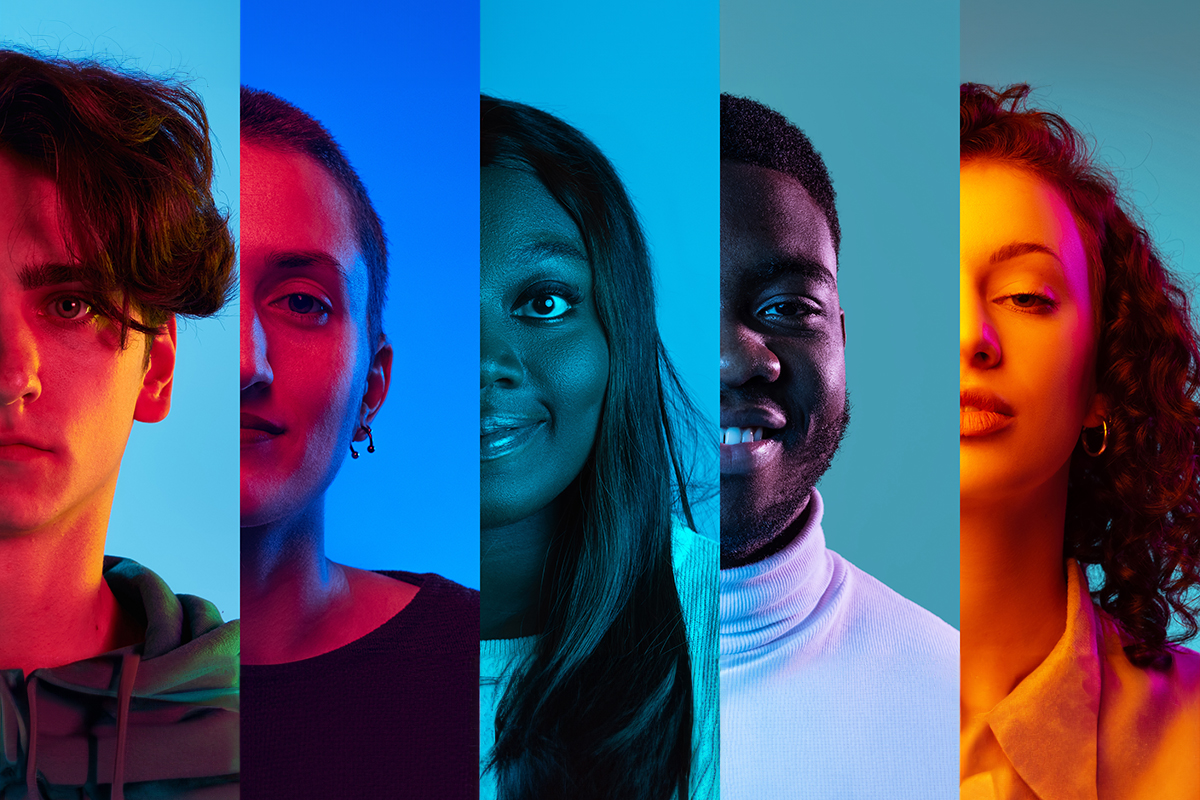
Upload your CV
Send us your CV to be considered for any open roles we have.

The conversation around diversity in recruitment has evolved beyond just corporate jargon. While organisations often discuss the advantages of a diverse workforce from an operational standpoint, true diversity in recruitment goes beyond meeting quotas or ticking boxes. It centres on the candidate’s experience – how they feel, what they observe, and whether they witness a genuine effort to create an inclusive environment.
Before delving into the intricacies of diversity in recruitment, it is imperative to grasp the nuanced experiences candidates undergo during the hiring process. From the initial application to the final interview, every interaction leaves a lasting impression on candidates, influencing their perception of the organisation and its commitment to diversity.
The Impact on Candidates
When organisations prioritise diversity in recruitment, candidates experience a workplace culture that actively seeks out and values individuals with diverse perspectives, experiences, and skills. This inclusivity extends beyond the hiring decision; it filters through to the entire work environment. Candidates appreciate and are drawn to organisations that not only talk the talk but also walk the walk, fostering an atmosphere where everyone feels welcome, respected, and empowered to contribute their best work.
The Emotional Landscape
The candidate experience is where we see whether diversity efforts thrive or struggle. Positive experiences, such as fair decision-making processes, equal opportunities for growth, and a sense of belonging, leave candidates with a lasting impression of an organisation committed to inclusivity. Conversely, negative experiences, whether due to unconscious bias or a lack of cultural awareness, can erode the trust and confidence candidates place in the organisation.
The Challenges Within the Candidate Experience
Recognising the importance of diversity in the candidate experience also entails acknowledging and addressing challenges. Overcoming unconscious bias and navigating cultural differences are key hurdles that organisations must tackle to create an inclusive and equitable recruitment process.
Unconscious Bias
Unconscious bias, if unchecked, can seep into every stage of the recruitment process. Candidates may perceive bias in decisions, hindering their chances of success. Organisations must raise awareness about unconscious bias and implement strategies such as blind recruitment and diverse hiring panels to ensure fair and equitable treatment throughout the candidate journey.
Cultural Differences
In a diverse workforce, cultural differences can sometimes lead to communication challenges and potential conflicts during the recruitment process. It is essential organisations to foster an environment of inclusivity, provide cultural awareness training, and encourage open dialogue. By doing so, organisations can transform cultural diversity into a strength that drives collaboration and innovation.
Enhancing the Candidate Experience
Creating a positive candidate experience in recruitment requires intentional strategies. Organisations can adopt several measures to ensure that candidates feel valued and respected throughout the process.
Inclusive Job Advertisements
Job advertisements should not only attract diverse candidates but also convey inclusivity through the language used. Organisations should strive to carefully select words and phrases that avoid any form of bias or exclusivity. Create job descriptions that resonates with a broad audience, regardless of gender, race, ethnicity, age, sexual orientation, disability, or socioeconomic status. For example, rather than using gender-specific terms like "salesman" inclusive language would utilise neutral terms like "sales representative". The goal is to make candidates feel that they belong and that their unique skills and experiences are not only welcomed but essential to the organisation's success.
Diverse Recruitment Channels
Expanding recruitment efforts to include diverse channels broadens the pool of potential candidates. Partnering with community organisations, leveraging online platforms focused on diversity, and participating in diversity job fairs are effective ways to reach a wider and more varied talent pool. By actively seeking candidates through diverse channels, organisations increase the likelihood of attracting individuals with unique perspectives and experiences.
Diversity Training
Diversity training is not just for employees but also a crucial aspect of the candidate experience. Providing insights into different dimensions of diversity, addressing unconscious bias, and imparting skills for effective collaboration in diverse teams contribute to a more inclusive environment. Equipping candidates with knowledge about an organisation's commitment to diversity enhances their confidence in the recruitment process.
Measuring Diversity
To gauge the effectiveness of diversity in recruitment, organisations can assess the impact on the candidate experience. Several key areas can be evaluated to ensure a positive and inclusive journey for candidates.
Tracking and Analysing
Monitoring recruitment metrics, such as the diversity of applicant pools and interview success rates for candidates from underrepresented groups, provides insights into the effectiveness of diversity efforts. By evaluating these metrics, organisations can identify areas for improvement and make necessary adjustments to ensure a fair and inclusive recruitment process.
Candidate Feedback
Organisations can actively seek feedback from candidates regarding their experience throughout the recruitment process. Surveys and post-interview evaluations are valuable tools for gathering insights into how candidates perceive the organisation's commitment to diversity. This feedback not only helps refine recruitment strategies but also signals to candidates that their opinions are valued.
Inclusive Workplace Culture
While diversity in recruitment is a pivotal step, creating a truly inclusive workplace culture is an ongoing commitment. Organisations must extend their efforts beyond hiring to foster an environment where all employees, regardless of background, feel valued, supported, and empowered to thrive.
By prioritising the candidate experience within the context of diversity, organisations can bridge the gap between rhetoric and reality, ensuring that their commitment to inclusivity is felt at every stage of the recruitment journey. In doing so, businesses not only attract top talent but also contribute to a more equitable and interconnected professional landscape.